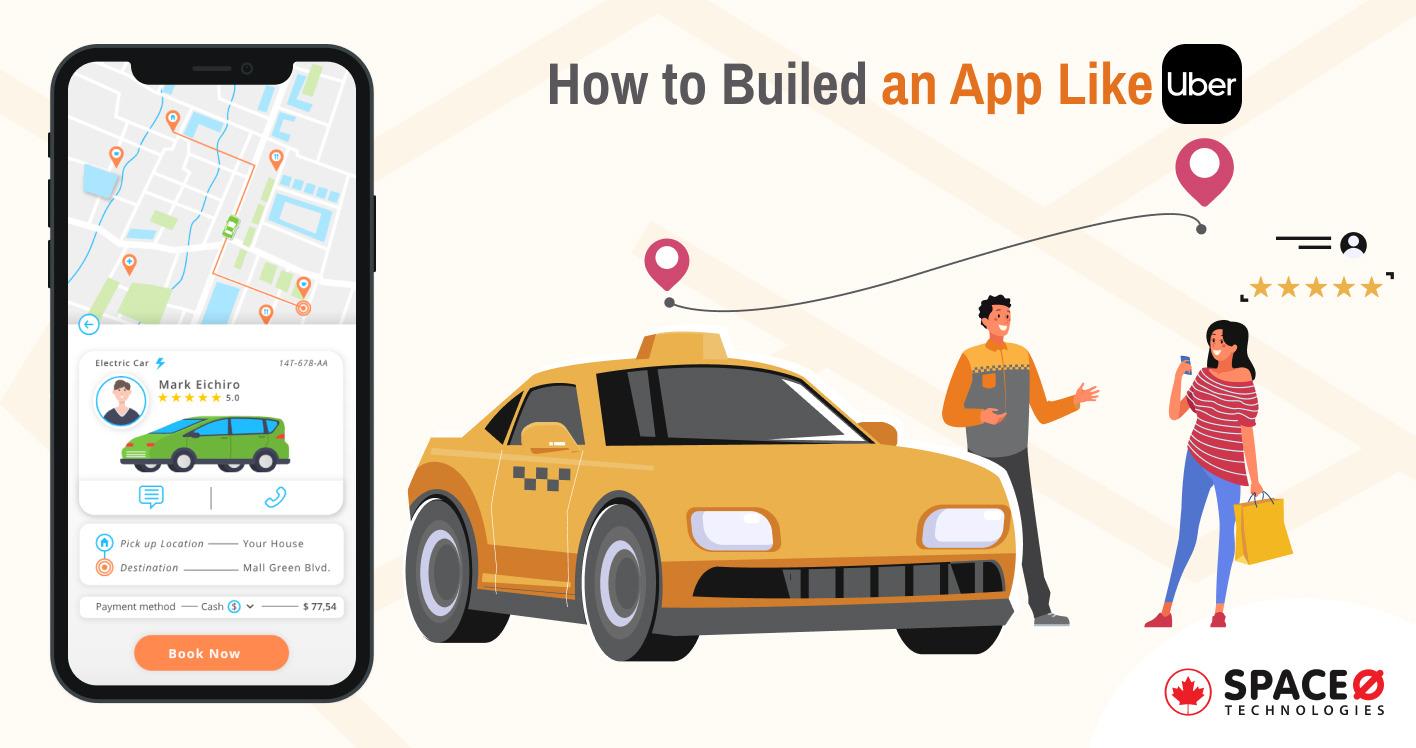
3 Lessons to Learn from Bolt (Taxify) – A Ride Sharing App
This blog is for those taxi startups and taxi business owners who wish to make it big with ride-sharing app development. We have rounded up 3 lessons from Bolt (previously known as Taxify) that you should instill in order to change the game.
Unless someone lives under a rock, everyone knows that the taxi business has been completely transformed with the advent of ride-sharing app development. Various apps like Uber, Lyft, Bolt, Gett among others have become the top players on the field.
Uber has had a monopoly in most of the nations but is slowly receding from its top position. It has made mistakes that have benefited its competitors in many ways. One of them is Bolt, previously known as Taxify.
Bolt’s CEO and founder, Markus Villig has said (in an interview with TechCrunch) that Bolt has entered the taxi booking app development to fix the problems of higher prices and poor service created due to monopoly. Well, it might take two to three years to do so, but as the trends show, they are doing remarkably well.
Let us walk through some interesting details about Bolt that will make the lessons even more appetizing.
Table of Contents
Some facts about Bolt – Top Ride-sharing App
- Bolt was formerly called Taxify and was founded back in August 2013 in Tallinn, Estonia.
- Bolt is successfully operating in 300 countries and 45 cities in Europe, Africa, West Asia, North America, and Australia, with over 75 million users and 1.5 million drivers.
- It was launched in London in 2017 but was forced to shut down due to license issues. Stubborn for success, it is relaunching in 2019 with rebranded name- Bolt.
- It had entered the e-scooter market in 2018 with the name Bolt, from where it started rebranding. (Why? Read on to find out)
- According to CrunchBase, On August 2, 2021 Bolt raised 600 million euros ($713 million) in a Series E funding round led by Sequoia Capital. The new investment round values Bolt at about $4.75 billion, more than double its last private valuation of $2 billion.
- Venture capital firm Sequoia and fund managers Tekne and Ghisallo are the primary investors while existing investors G Squared, D1 Capital, and Naya increased their holdings.
Want to Create Ride-sharing App Like Bolt?
Our mobile app developers have experience in developing feature-rich apps that are tailor-made and easy to use.

3 Lessons to Learn from this Ride Sharing App like Bolt
-
Unique Strategies
To drive ahead of other ride-sharing apps, it is focusing on business strategies that benefit the users, drivers, and the company.
- Price competition: On the driver side, Bolt plans to charge a commission of 7.5% and will switch to 15% (which is half of its competitors) after the first two months. This will provide up to 10% more earnings to the drivers. This might take it among the best rideshare apps for drivers.
- On the passenger side, Bolt plans to launch with a 50% discount then switch to regular rates that will be 5-10% lower than competitors.
- Safety features: This ride-hailing app will be enhancing safety features by launching a “panic button”. Both passengers and drivers may press this when they feel they’re in danger. This will alert the cab booking app as well as the police.
- Unlike most Uber alternatives, a passenger can share its ride details through the app itself. In fact, they are extending the safety measure to the examination of drivers’ track records.
-
Rebranding
Taxify drove away from its old name in December 2018 and rebranded itself as Hopp in London. It signed up for various drivers but no passengers. It rebranded to the name Bolt all over the world but whether Hopp will also be rebranded to bolt is not sure yet.
The on-demand taxi app changed the name to avoid confusion with another company with the same name. The name – Bolt, implies electricity and speed.
By removing the word ‘taxi’, they wish to clear their intent of branching out to other transport means and not just cars. They have already expanded to scooters and plan to add other individual transport modes and link public transport. Basically, the name implies that they are not just a taxi-dispatch app anymore.
If you plan on ride-sharing app development, even you should decide on a name that is clear and yet clears the intention of your business.
-
Using its late-coming as an advantage
Even though the ride-hailing app is a late entrant in the market, Villig believes that it could use this to his company’s advantage. How? Well, Bolt has spent significantly less to educate the market about its services and gained drivers and users quite quickly.
It has also learned from mistakes shouldered by others. As an illustration, Uber made many mistakes in the haste of becoming number 1 that it barged into cities and ran until it got shut down (sometimes for months) due to regulatory issues. This helped Bolt to understand the regulatory standards of various nations.
Also, according to The Information, Uber has spent over $2 Billion on its own self-driving car efforts, which has brought no ROI yet. Bolt plans to partner with the successful results rather than attempting this on its own.
Being a Taxi service startup, even you can adapt these lessons to boost your business exponentially.
Conclusion
Before we complete this ride, we hope that even you are inspired to create a ride sharing app development for your ride-sharing startup. If you have an app idea on taxi app development, white label taxi app, Uber clone app development, Uber-like app development, long-distance ride-sharing app development, or any mobile app idea at all, you can contact us.
Why us? Well, we promise to convert your dream app idea into a reality. We are a prominent taxi booking app development company and have experience of developing over 50+ taxi booking apps and solutions.
Feel free to consult our experts regarding your app idea and any queries regarding app development timeline or cost. This consultation is free of charge and our expert will get back to you within 48 hours.

Looking to Develop a Ridesharing App?
Editor's Choice

3 Tips to Consider While Developing an On-Demand Staffing App

What is Airbnb for Cars? ( How it works + Ways to Expand + Features)

How to Build an App Like Uber in 2025 [A Complete Guide]
All our projects are secured by NDA
100% Secure. Zero Spam
*All your data will remain strictly confidential.
Trusted by


Bashar Anabtawi
Canada
“I was mostly happy with the high level of experience and professionalism of the various teams that worked on my project. Not only they clearly understood my exact technical requirements but even suggested better ways in doing them. The Communication tools that were used were excellent and easy. And finally and most importantly, the interaction, follow up and support from the top management was great. Space-O not delivered a high quality product but exceeded my expectations! I would definitely hire them again for future jobs!”

Canada Office
2 County Court Blvd., Suite 400,
Brampton, Ontario L6W 3W8
Phone: +1 (437) 488-7337
Email: sales@spaceo.ca

